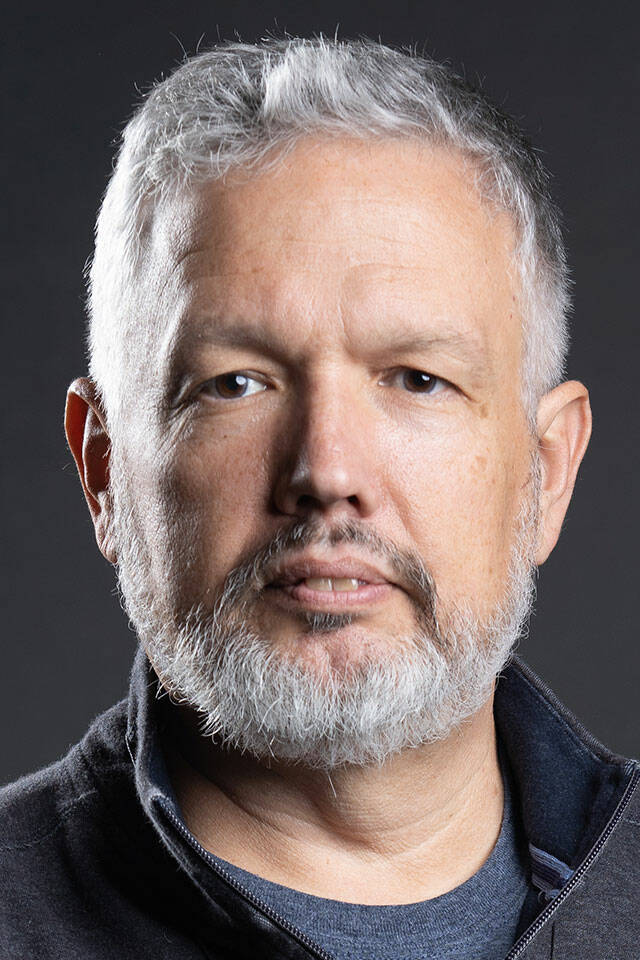By Dan Hazen / Herald Forum
Let’s do a thought experiment. Think about someone whom you consider “weak.” It might be physical weakness or frailty, perhaps you consider them intellectually weak or even morally weak. When you think “weak” who comes to mind?
Now, put down the paper or the device from which you’re reading, close your eyes and really imagine them. Picture them in their “weakness” for a good minute or so, then come back here.
What did you feel as you imagined them? Pity? Compassion? Did you feel frustration or anger? Maybe disgust or something else?
The point I wish to make with this experiment is: How we respond to perceived weakness is deeply telling about who we are. Perhaps the most telling thing.
There are two categories of response to weakness with an admittedly large and squishy middle space between: predator or protector. When confronted with weakness we see either someone who should be covered, assisted, trained, supported, nurtured or even rescued, or we see someone who should be ignored, abandoned, ridiculed, punished, exploited or even consumed. Watch any nature documentary to see this principle at work.
With this in mind, go back to your imagined weak person. Which category did your response tend toward? Protection or predation? Now, imagine a different “weak” person who might elicit the opposite response. Why did you respond differently?
Here’s an example from my own brain. The first person I imagined was an elderly friend. She is physically weak, financially weak, and increasingly cognitively weak. I feel compassion and respect; a “protector” vibe for sure. But when I let the more predatory feelings rise, I instantly thought of Russian President Vladimir Putin. Then I thought of Donald Trump. Then I thought of Bryce Henderson (a pseudonym for my middle school bully). All of them weak men; morally so, with tragically frail egos, profound deficits in reasoning skills and ability to accept truth. I felt significant aggression when contemplating their weakness.
It gets interesting when we consider how this thinking defines our species. We lean in to the predatory for sure.
Just look at how we entertain ourselves. We prey on the weak. It’s the core of almost every sport and game: uncover the weaknesses of your opponent, exploit them to your advantage and you are awarded points for successfully doing so. Billions of dollars change hands for the privilege of either watching others do this, or of engaging in the practice ourselves.
We train our children in the finer points, everything from soccer and racquetball to chess, poker, and Fortnite. It’s also how Trump, Putin and Henderson succeed. Our entire financial system is based on identifying weakness and exploiting it: buy low, sell high. The only reason your retirement account works is because of this. We reward predators. It’s the fabric of our existence.
But what if we began at least dealing with our bullies differently? Treating them like the weak people that they are? I’m not suggesting that Trump or Putin need “protecting,” but I am suggesting that responding to weak people who are predatory with more predatory behavior has simply spun us into the realm of UFC, WWE, fountains-of-blood video games, gun wielding 6-year-olds and global tyrants. It has created an economy which is spinning out of control, crushing people and corrupting the planet.
Maybe if we train ourselves to be protectors and not predators when confronted with weakness, we will produce fewer bullies and more heroes. Look to the best of our law enforcement officers or conversely the worst of our church leaders to see this principle at work.
Dan Hazen is the community pastor at Allen Creek Community Church in Marysville.
Herald Forum
The Herald Forum invites community members to submit essays on topics of importance and interest to them. Essays typically are between 400 and 600 words in length, although exceptions for longer pieces can be made. To submit essays or for more information about the Herald Forum, write Herald Opinion editor Jon Bauer at jbauer@heraldnet.com or call him at 425-339-3466.
Talk to us
> Give us your news tips.
> Send us a letter to the editor.
> More Herald contact information.

























